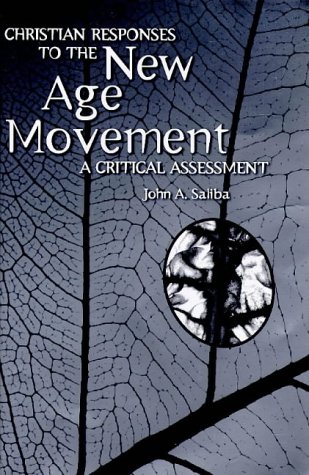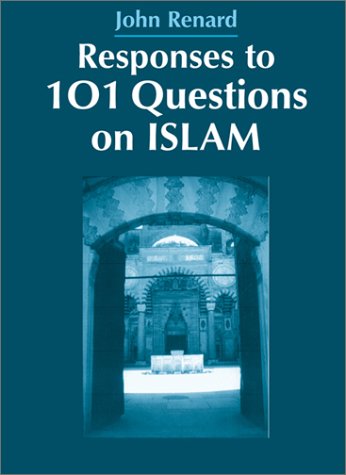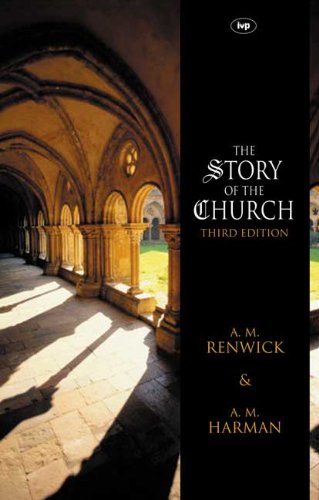Volume 25 - Issue 2
Systematic Series—A Review Article
By Tony GrayOver the past few years, it seems that systematic theology has had a new lease of life in the publishing market. Various publishing houses have started important series in the field, and have thus demonstrated a commitment to the topic. This article aims to survey a number of these, in order to help the student make some headway amongst all that is coming out.
Whilst not strictly a series, two recent works by Francis Watson merit mention in this context. Text, Church, and World, and Text and Truth, chart Watson’s argument to bring together systematic theology and biblical theology. The subtitles of the respective volumes speak for themselves: ‘Biblical Interpretation in Theological Perspective’ and ‘Redefining Biblical Theology’. For anyone involved in theology, whether biblical studies or systematic theology, Watson’s work challenges the cherished assumptions of much of the academy, and bring crucial questions to bear on the work of exegetes and systematicians alike. Inevitably they also enter the world of hermeneutics, and useful discussion is found of many of the major players in modern debate.
If these two volumes are too much to wade through, then a brilliant and refined version of Watson’s thesis can be found in his contribution to the Cambridge Companion to Christian Doctrine. This volume, edited by Colin Gunton, forms the first part of what is turning out to be a very useful series. It is very much a companion, and includes 14 excellent essays by leading international scholars. The essays lean on the orthodox and conservative side of the theological spectrum. Although by no means all of them are evangelical in their approach, it is an extremely welcome sign to see something of a text book in academic theology which is at the very least Trinitarian and incarnational. Contributors include amongst others Colin Gunton (Historical and Systematic Theology, and The Doctrine of Creation), Jeremy Begbie (Christianity and the Arts), Kevin Vanhoozer (on anthropology), Trevor Hart (Redemption and Fall). Stanley Hauerwas brings his customary challenging perspectives to questions of ethics and theology, stressing their inextricable links. Gerald Loughlin likewise outlines current issues in authority, although questions concerning post-liberalism remain. Similarly, Geoffrey Wainwright brings an ecumenical perspective to pneumatology, and David Fergusson delivers eschatology into the heart of doctrinal concerns. Although this companion may not be the perfect introduction for the non-specialist, it is to be warmly welcomed both as a helpful text and as a sign that Christian doctrinal studies may possibly be on a more positive path. Of course evangelicals will have critical questions to bring to the text, especially concerning the exact understanding of Scripture and the role that it plays in theology, and the precise nature of atonement, but if these are kept in mind then this work can be extremely useful.
The Cambridge Companion to Biblical Interpretation, edited by John Barton, follows the same format, with solid essays on major topics by the best in the field. This time twenty essays from the likes of David Jasper, Ann Loades, Anthony Thiselton, Robert Morgan, Robert Alter, John Ashton, James Dunn and Frances Young bring their expertise to bear on a wide range of topics in biblical studies. Thus whilst this title is not strictly one which would come under the heading of systematics, it both falls into the series, and would be a welcome help to the systematician wanting to acquaint themselves with the field. For example, James Dunn is well qualified to describe issues and prospects in Pauline letters research, and Anthony Thiselton summarises very well in 28 pages issues on which he has written thousands of pages! What is disappointing is the lack of a contribution on biblical theology, given what Watson has written in the accompanying volume. Two further volumes boost the series thus far. John de Gruchy has edited The Cambridge Companion to Dietrich Bonhoeffer, and Christopher Rowland The Cambridge Companion to Liberation Theology. Both editors are experts in the respective fields, and again Cambridge University Press are to be commended for enlisting teams of renowned and well versed scholars. Studies in Bonhoeffer and his theology occur in almost every university course, and this volume offers helpful introduction, overview, and comment, on various aspects of his life and theology. Worthy of particular mention are John Moses’ essay on the German political context, and Peter Selby’s piece on ‘Christianity in a world come of age’. The volume on Liberation Theology covers all the major bases expected, and again will serve as a solid and clear introduction, yet at the same time an introduction that offers food for thought. Thus essays by O’Donovan on political theology, and Mary Grey on feminist theology, have such effect. There are more volumes in the offering (Medieval Jewish Thought, Christian Ethics, Karl Barth, and Postmodern Theology), and they are to be eagerly awaited. First year undergraduates may not find all the introduction they wish here, but as reference tools, and collections of short essays to make you think, they are to be highly recommended.
Edinburgh University Press has recently committed itself to two series in theology. The first, the Edinburgh Studies in Constructive Theology (series editors are Kevin Vanhoozer and Philip Clayton) sets its aims as the following:
In a discipline which is growing weary of ideological critique and the preoccupation with method, Edinburgh Studies in Constructive Theology returns to the central themes of systematic theology, relating past thought to areas of contemporary concern in a way that is both faithful and creative. The volumes in this series reflect a confidence in the continuing relevance of Scripture and the Christian tradition.
Like the Cambridge Companion series, while these are not card-carrying evangelical works, such alms and claims are to be enthusiastically welcomed, even if their intentions may not always have the desired result. So, for example, Gabriel Fackre offers a study on The Doctrine of Revelation: A Narrative Interpretation. Although slightly predictable in its employment of the model of narrative to elucidate the doctrine of revelation. Fackre’s work is to be welcomed for the Trinitarian way in which it tackles the subject. Thus the three-fold structure examines general revelation, special revelation (with useful attention to the question of Israel), and revelation as reception. Fackre is someone who has always sat on the edge of evangelicalism. This is to be welcomed at least in the fact that he does give due and detailed consideration to evangelical doctrines of Scripture, and indeed includes a detailed analysis of Carl Henry’s position, yet at the same time all evangelicals may not be happy with the path he finally takes. Students should turn elsewhere for a conservative evangelical doctrine of revelation, yet here they will find a generous and thoughtful reflection on all aspects of revelation.
By far the most enjoyable volume in this series so far must be Colin Gunton’s The Triune Creator: A Historical and Systematic Study. Well known already for his Trinitarian theology, in this study he examines how that theology relates to the doctrine of creation. Using biblical and historical case studies, Gunton elucidates a thoroughly Trinitarian doctrine of creation, and then applies this to various systematic questions, including providence, anthropology, eschatology and ethics. The historical chapters make informative reading in their own right, and hence this study would be useful in this way alone. However, Gunton is keen throughout to avoid mistakes in his doctrine of creation, moving between the heresies and traps which various groups and individuals have fallen prey to during the centuries, even today. For example, he is well-acquainted with the popularisation of modern science, and the distorted views of God and creation these can eventually lead to. As with other volumes in this series on constructive theology, there is a distinct Barthian flavour to the theology. However, to a critical and acute eye that is not to be feared. An affirmation of a providential Trinitarian God, revealed primarily in Jesus Christ, is to be welcomed. The third volume in this series to have appeared thus far is Philip Clayton’s God and Contemporary Science, and as with the other volumes, this offers a clear and informed guide to contemporary and historical issues. Others projected in the series include Paul Fiddes on Salvation, Alister McGrath on Constructive Christology, Bruce Marshall on The Holy Spirit, Kevin Vanhoozer on Divine Action and Providence, John Webster on The Shape of the Self, and Rowan Williams on The Trinity. These volumes are not at an introductory level for first year students, but, as study aids and detailed reflections, they are worthwhile. The fact that they are indeed ‘constructive’ means that at the very least they are worth a look, and the others are eagerly awaited.
The second new series offered by Edinburgh University Press is the ‘Reason and Religion’ series. These are more strictly studies in the philosophy of religion, but have close affinity with issues in systematics, and in fact would be of great use to students in either discipline. Paul Helm is the series editor, and he offers the first volume in the series examining Faith and Understanding. After a discussion of the various meanings of the phrase ‘faith seeking understanding’ (including discussion of Wittgenstein, Kant, D.Z. Philips, Kretzmann and Plantinga), Helm delivers part 2 as a series of 5 case studies into theological situations whereby the concept of faith and understanding is elucidated. These include Augustine’s Confessions on time and creation, Anselm’s Proslogion on ontology, Anselm on the incarnation, Jonathan Edwards on sin, and Calvin on the Sensus Divinitatis. These case studies are excellent, and could well be used as texts for philosophy of religion courses. They introduce the historical question, the theology of the authors, and then relate the issues to the faith seeking understanding project. Along the way Helm also teaches small important lessons from the case studies, such as the limits of disagreement Augustine viewed acceptable, and the role that divine illumination plays for Anselm. An excellent introduction to the series.
C. Stephen Evans contributes a volume on Faith Beyond Reason, examining and critiquing primarily the heritage of Wittgenstein. Often misjudged as fideism (a label which Evans clearly explores and critiques), Evans handles well the historical and contemporary issues in the philosophy of religion which relate to this question. His conclusion is that faith does not reject reason, but rather critiques or goes beyond reason. Evans writes clearly and at an accessible level, and this will be of use to both the student wanting to learn, and to the Christian wishing to reflect on the relationship between faith and academic theology. God, Reason and Theistic Proofs is another solid contribution to the series by Stephen T. Davis, which goes through the traditional proofs for God’s existence (and some more!), and analyses what it might mean for a proof to work. Although there are many books that run through these issues, this will serve as a useful textbook, particularly for the believer who wishes to explore the implications of such discussion. The final volume in the series to date is The Moral Interpretation of Religion by Peter Byrne. It concentrates on the philosophical attempts to interpret religion in moral terms, and so includes extensive discussion of Kant. Although hard work at times, the exploration of the work of Iris Murdoch is most illuminating, and thus explores and critiques a modern re-working of this approach. This series has much to offer—clear introductions, based on solid thinking, which wished to explore in depth the relationship between faith and theology.
Two more series are worth mentioning. The Scottish Journal of Theology has started an occasional series on Current Issues in Theology, the two most outstanding contributions being Interpreting God and the Postmodern Self, by Anthony Thiselton, and Sanctify Them in the Truth, by Stanley Hauerwas. As books they are chalk and cheese. Thiselton, writing more accessibly than he often does, provides a clear systematic walk through issues of hermeneutics and anthropology, dealing devastating blows to people like Cupitt. Hauerwas’ volume brings together addresses and sermons on a wide range of ethical and political issues—disability, violence, homosexuality, and community—to name but four, and never fails to surprise, challenge, and make the reader sit down and shut up. These are not introductory works for students, but they do offer much meat to chew and ponder. Questions must surely remain about his method, but no-one can now ignore his impact. The final series to mention is similar—by no means are these student introductions, but rather examples of academic theologians at their most academic. The Cambridge Studies in Christian Doctrine, edited by Colin Gunton and Daniel Hardy, so far includes two titles. David Ford’s Self and Salvation: Being Transformed is one of those books that made me as a reader wonder if I had lost it! Deep, complicated, and forever swirling in circles, Ford uses the image of the face to explore the meaning of Christian salvation. This is not your traditional textbook on sauteriology, and indeed there is little discussion of the intricate and historical issues surrounding substitution. Nevertheless, there are nuggets in there, especially when digging around his discussion of the arts and the two historical examples he explores—Therese of Lisieux and Dietrich Bonhoeffer. This reviewer must admit to a slight temptation of calling the emperor’s bluff, but then academic theology always presents that danger. The second book in the series is more digestible, with Sue Patterson offering a helpful analysis of post-liberalism in her Realist Christian Theology in a Postmodern Age. Exploring the problems presented by modernism and postmodernism, she aims for a theological realism which takes both current issues and the incarnation seriously. In fact, this is basically an essay in incarnational theology, and is to be commended as such. She covers well the territory explored by Lindbeck and Frei, and continues their work in a positive and helpful direction. Again, not a book for the student starting out, yet there are others in the pipeline which may offer similar depth and discussion (Begbie on the arts, Jenson on the Church, Marshall on the Trinity, McFayden on Sin, and Vanhoozer on Remythologizing Theology).
Of course, there have been many other books in this time-span, some much more worthy and helpful than these volumes. Nevertheless, two positives can at least be concluded. That publishers want to take systematics and doctrine seriously. And that most of these fall on the orthodox side of the fence, rather than the liberal. What would I buy out of these? Given two choices, probably the Cambridge Companion to Christian Doctrine by Colin Gunton, and Paul Helm on Faith and Understanding. Although they may never become ‘classics’, I will refer to them for years to come.
Tony Gray
Oxford






